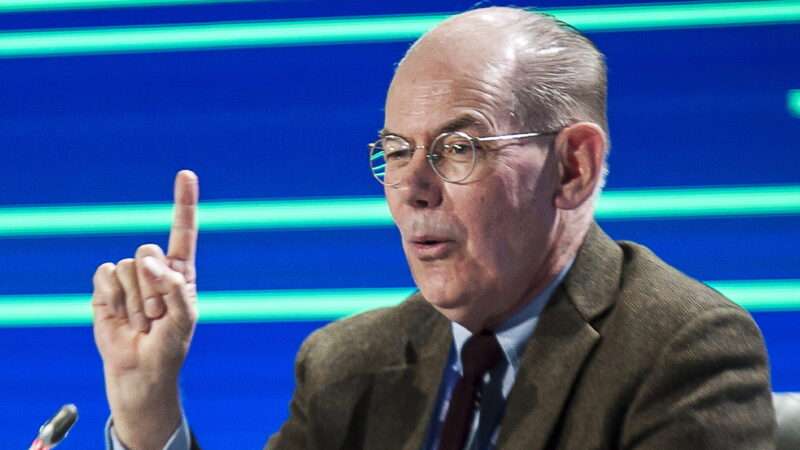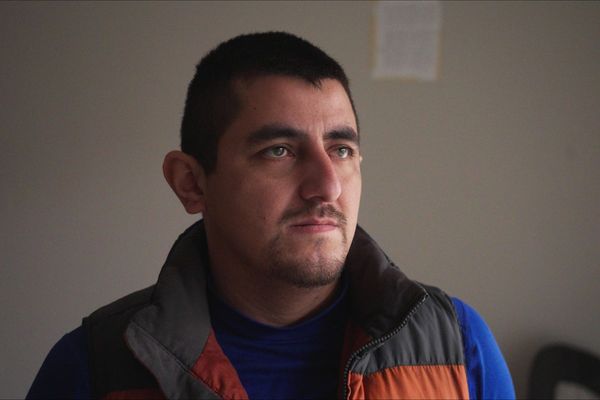
Academics often strive to get the public to engage with their work. But John Mearsheimer, an international relations theorist at the University of Chicago, got more attention than he bargained for.
Mearsheimer has been raising the alarm for years that Western attempts to ally with Ukraine would provoke a violent Russian response. That prediction became tragically relevant last month when Russian President Vladimir Putin invaded Ukraine. To make matters worse, the Russian foreign ministry has promoted a 2014 article by Mearsheimer called "Why the Ukraine Crisis Is the West's Fault."
Academic figures from a former U.S. ambassador to Russia to a biographer of Joseph Stalin lined up to explain why they disagreed with Mearsheimer. Anne Applebaum, staff writer at The Atlantic, even accused Mearsheimer of providing Russia with its talking points for war.
The controversy over Mearsheimer's work is about two different questions. The first is whether his theories accurately explain what is happening to Ukraine. The second, deeper question is about the role academics play in foreign policy. International relations scholars try to explain how the world works, but what is their usefulness and responsibility when a crisis begins? Where does one draw the line between describing the logic of an enemy state and justifying it?
"Everyone has an implicit theory in their mind when they're making policy proposals," Ben Denison, an expert in regime change and a nonresident fellow at Defense Priorities, said in a phone interview. "Your theory of why this war began will affect the solution."
There are plenty of competing academic theories about war and peace. Liberals and neoconservatives try to explain geopolitics in terms of ideology and institutions. Marxists look to economic factors and class struggle. Both Mearsheimer and Denison are part of the growing "realist" camp, which teaches that states are motivated by the competition for security.
Ukraine's violent crisis began in 2014, when Ukrainians who wanted their country to build stronger relations with Western Europe carried out a successful revolution. Russia then backed a violent counterrevolution in the east of the country and annexed the Crimea region. After eight years of civil war between the Ukrainian government and the pro-Russian rebels, Russia is now launching a new large-scale invasion of Ukraine.
There are many different theories as to why Russia chose to escalate now.
Many realists focus on the role of NATO, the U.S.-led military alliance in Europe. In recent years, NATO has expanded to include several formerly communist Eastern European nations. The alliance has even promised that Ukraine could become a member, while NATO countries dramatically increased their cooperation with the Ukrainian military.
Russia saw NATO's moves as threatening. An important part of realism is accounting for uncertainty, Denison explains; even though NATO calls itself a purely defensive alliance, Russian leaders have to think about the possibility that NATO countries might use Ukrainian territory to threaten Russia during a future crisis.
Mearsheimer repeatedly pointed out that the United States itself refuses to accept foreign influence in its region under the 1823 Monroe Doctrine, and nearly invaded Cuba in 1962 to destroy Soviet missile bases there.
Several former U.S. diplomats have made similar points. George Kennan, architect of the anti-Communist "containment" strategy during the Cold War, predicted that expanding NATO into Eastern Europe would provoke a "bad reaction from Russia." So did Henry Kissinger, former secretary of state, and Jack Matlock Jr., former U.S. ambassador to Russia.
Critics counter that Moscow has more ideological reasons for menacing Ukraine. The country used to be part of the Russian Empire and the Russian-dominated Soviet Union, a history Russia's leaders have not forgotten.
"We're not afraid of Venezuela, and Russia is not afraid of Ukraine," Applebaum said in an interview before the invasion. "They're afraid of Western democracy in the form that it could unseat Putin…and in Ukraine it particularly bothers him, because Ukraine is a former Russian colony."
She pointed out that Poland joined NATO in 1999, yet it did not host U.S. forces until the 2014 Ukrainian crisis "created this need to defend the West, to defend Europe." (However, the U.S. has been floating the possibility of setting up missile bases on Polish soil for decades.)
If the realist view is true, Denison says, that opens the possibility of striking a peace deal that resolves Russian security concerns. But if Putin really has an ideological disgust for the existence of Ukraine or Ukrainian democracy, then there isn't much to negotiate about.
Even Russian statements have given off mixed signals regarding the president's motives. In his speech before the invasion, Putin called the possibility of NATO bases in eastern Ukraine "a knife to the throat." In peace talks between the two countries, Russian negotiators have focused on getting Ukraine to renounce any future ties with NATO and accept "neutrality."
On the other hand, Putin has also ranted that Ukraine is a fake country run by Nazi holdovers involved in a Western conspiracy to destroy Russian culture.
For critics of realism, explaining Russian interests in reasonable terms veers dangerously close to Putin apologism. (American officials have run into similar controversies for writing about the reasoning behind Iranian strategy.) And blaming Western or U.S. actions for the crisis seems to take responsibility out of Russia's hands.
After all, the Russian government itself found Mearsheimer's work worth promoting.
But at the end of the day, there is a strategic danger in denying that other countries have rational goals. If U.S. leaders treat their enemies as simple madmen, "it almost makes you throw your hands up and say there's nothing we could have done" to prevent war, Denison says. Deterring rivals is only possible with a clear sense of what those rivals want.
"In an ideal world, it would be wonderful if the Ukrainians were free to choose their own political system and to choose their own foreign policy," Mearsheimer told New Yorker reporter Isaac Chotiner after the invasion began. "But in the real world, that is not feasible. The Ukrainians have a vested interest in paying serious attention to what the Russians want from them. They run a grave risk if they alienate the Russians in a fundamental way."
Mearsheimer did not respond to a request for comment.
The post When Professors Do Foreign Policy appeared first on Reason.com.







